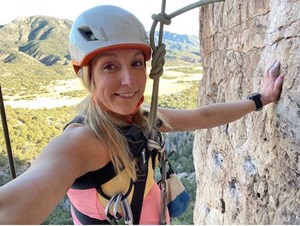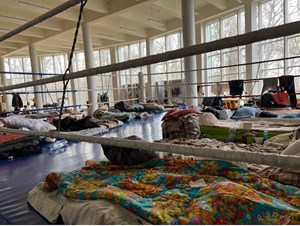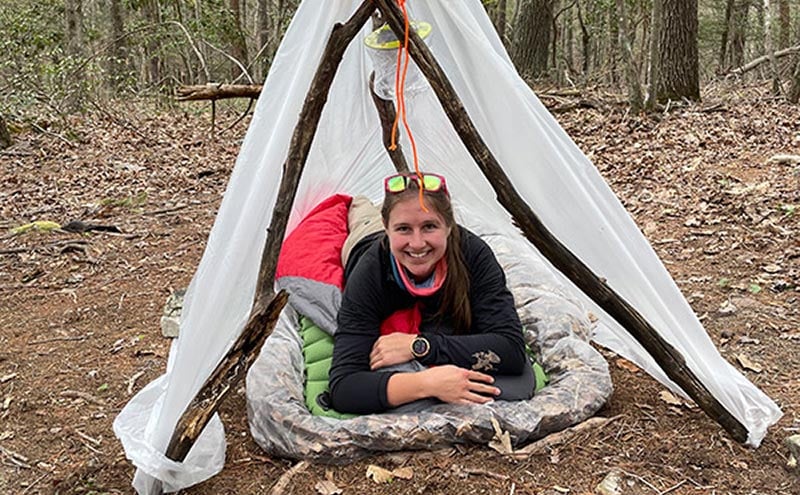
Surviving 101 - My Experience at Survival School
As part of the Medical College of Georgia Wilderness Medicine Fellowship curriculum, I attended a survival skills course put on by the Mountain Shepherd Adventure School in Catawba, Virginia. I loved that the Mountain Shepherd school is owned and operated by a woman and that they offer survival and outdoor adventure courses geared towards women and middle school girls!
During the course, we covered the seven tenets of survival: positive mental attitude, first aid, shelter, fire, signaling, water and food. We learned multiple ways to build a makeshift shelter out of a painter’s tarp, 550 cord and tree branches, how to create a mattress of leaves to get a comfortable night’s sleep, and methods to starting fires without matches or lighters. We covered signaling with mirrors and objects on our person or found in the woods. The universal signal for “help” is a “V”. We discussed basic first aid and water purification methods. Finally, we talked about obtaining food, which bugs are safe to eat (anything with 6 legs or less; if it’s bigger than your thumb, you need to cook it first) and had the option to sample ants and fried roaches. We built makeshift shelters and spent the night in them. We did not practice bushcraft or building shelters out of entirely natural objects – instead we learned how to survive assuming we got lost on a day hike and packed some basic survival tools. Based on what I learned in the course, I am now building myself a small “survival kit” to carry on my outdoor adventures, along with my first aid kit.
Here is what I am putting in my survival kit:
- 9x12 ft 2mm painter’s tarp (weighs <1 lb)
- 550 cord (paracord)
- Fixed blade knife
- Ferro rod (specifically Light My Fire ferro rod for its small size and light weight and it worked the best of the many rods we sampled)
- Firestarter (dryer lint mixed with petroleum jelly and packed into a paper towel roll or cotton balls mixed with petroleum jelly)
- Signaling mirror
- Compass & map
- Garmin InReach or Spot
- Headlamp and extra batteries
- Glow stick
- Iodine tabs & water filter
- First aid kit
The course offered at Mountain Shepherd was designed to provide basic skills to anyone who enjoys recreating outdoors, but particularly was aimed at survival in East Coast mountainous conditions. I would recommend taking a local survival skills course in the area where you primarily recreate. This was a great weekend spent outdoors with some interesting people, and even the Eagle Scouts in the group learned something new! A key to survival is preparation – consider what you are carrying in your pack before your next adventure.
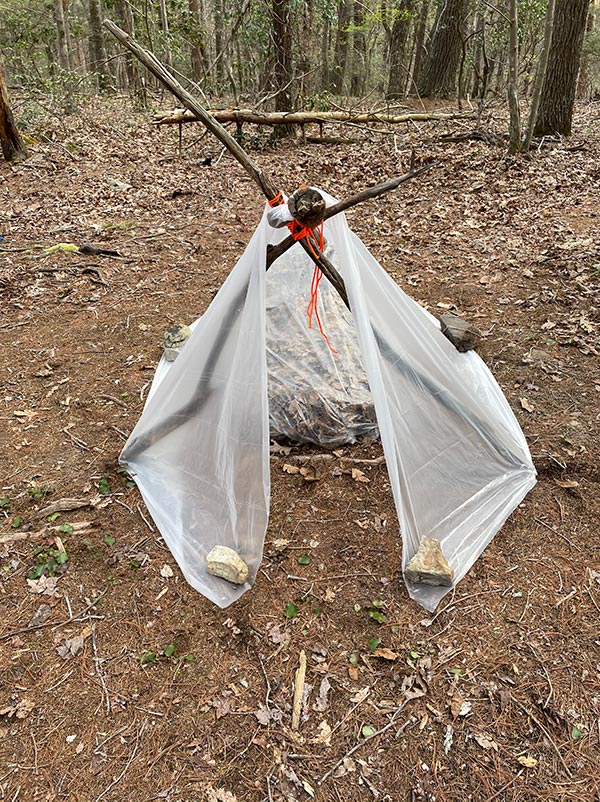
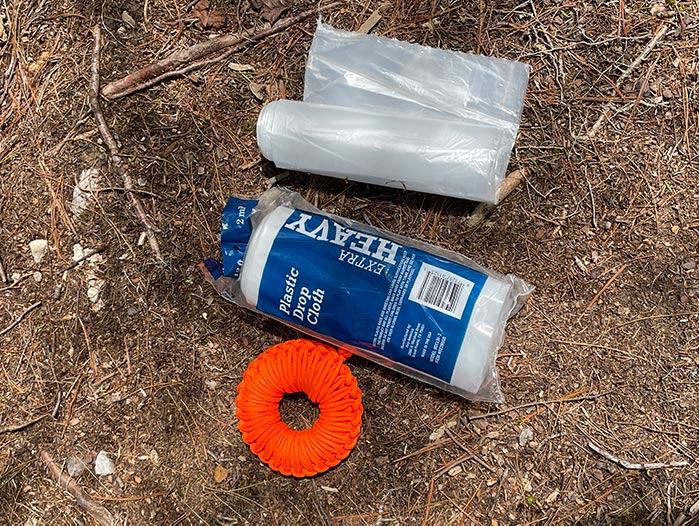
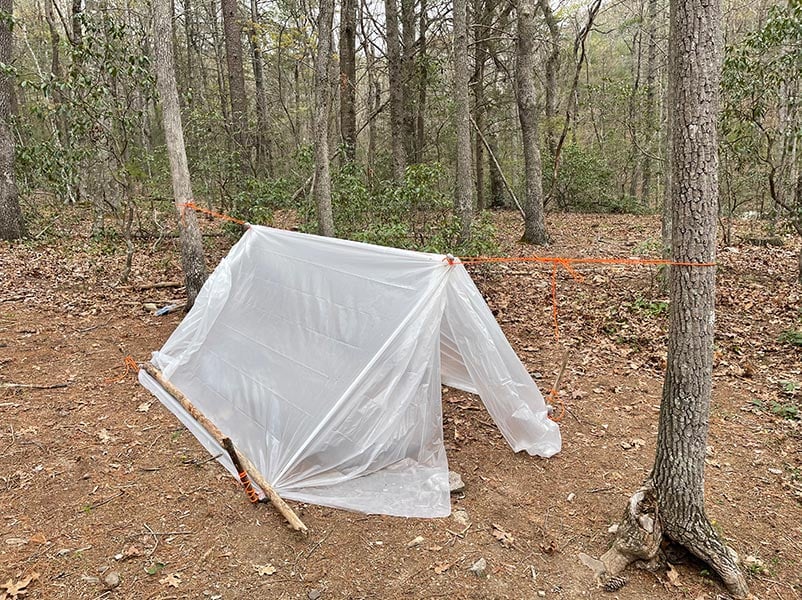
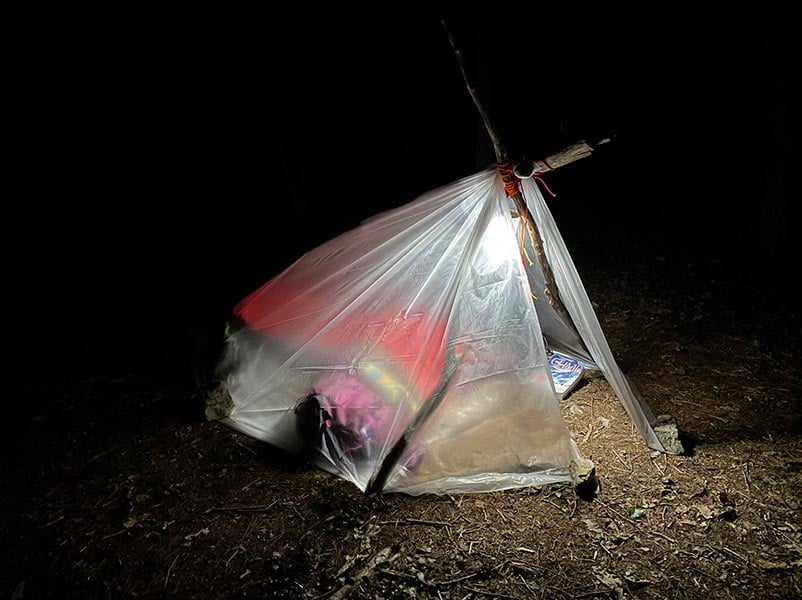
Aubri K Charnigo, MD
Wilderness Medicine Fellow at MCG/Augusta University

